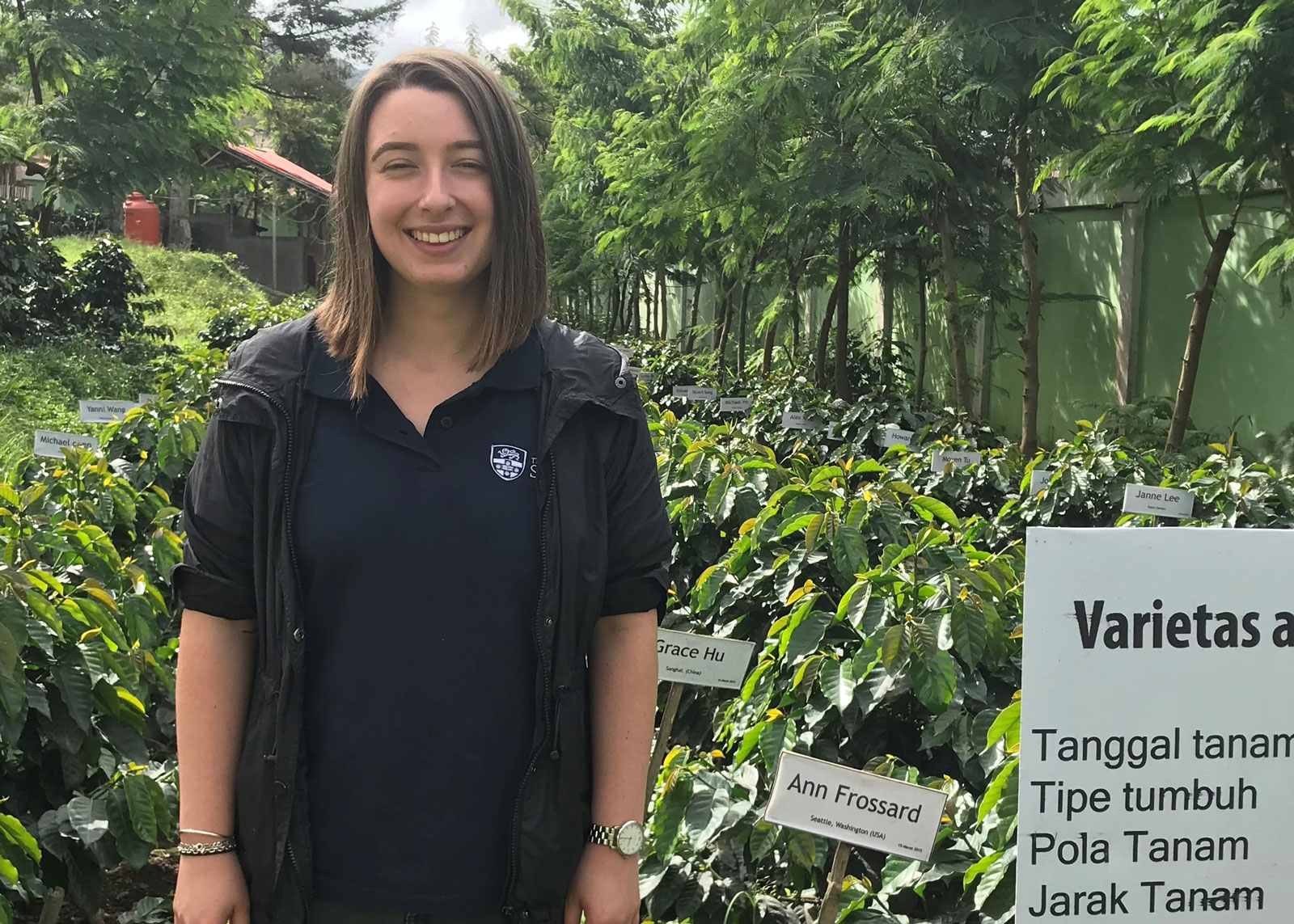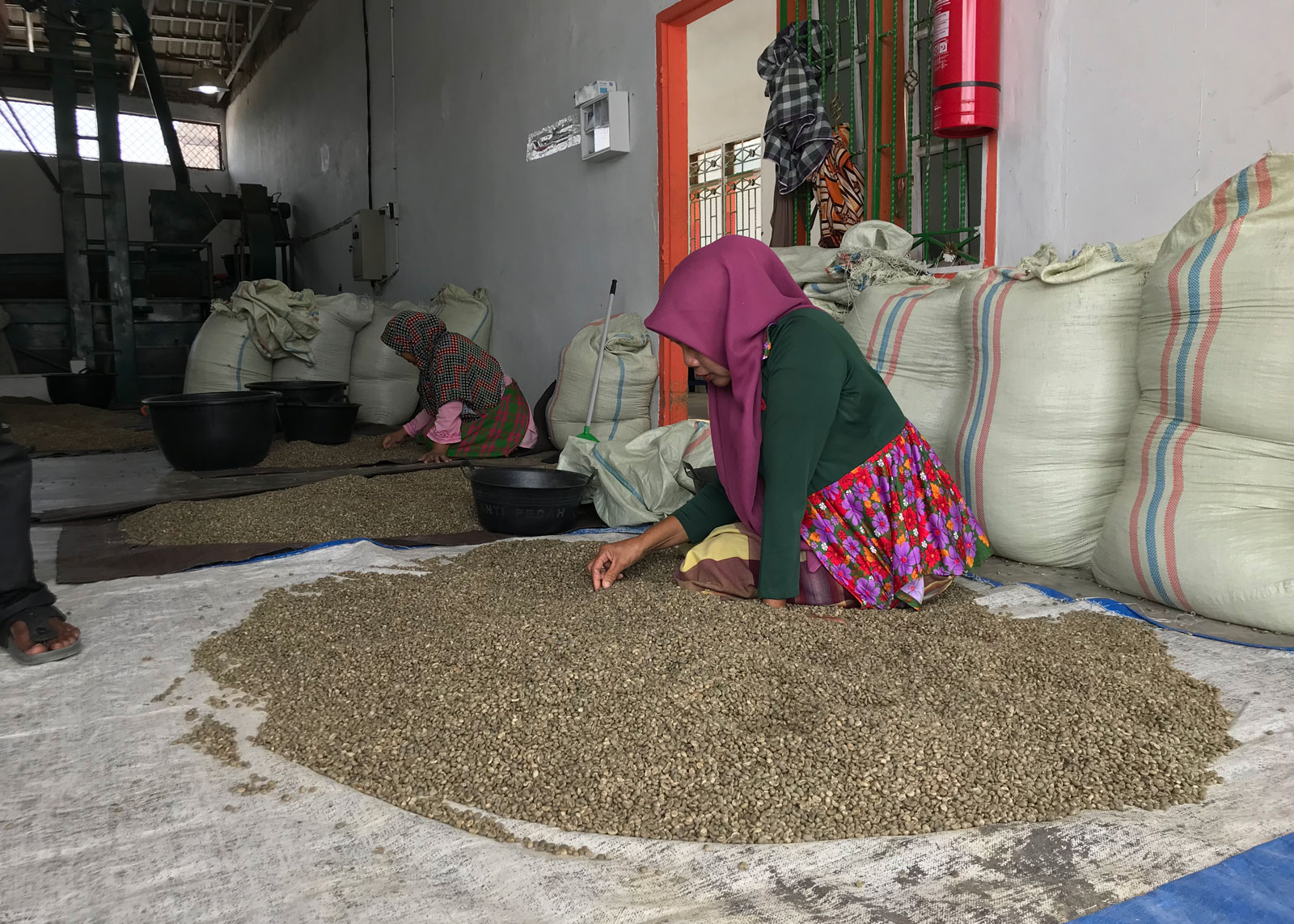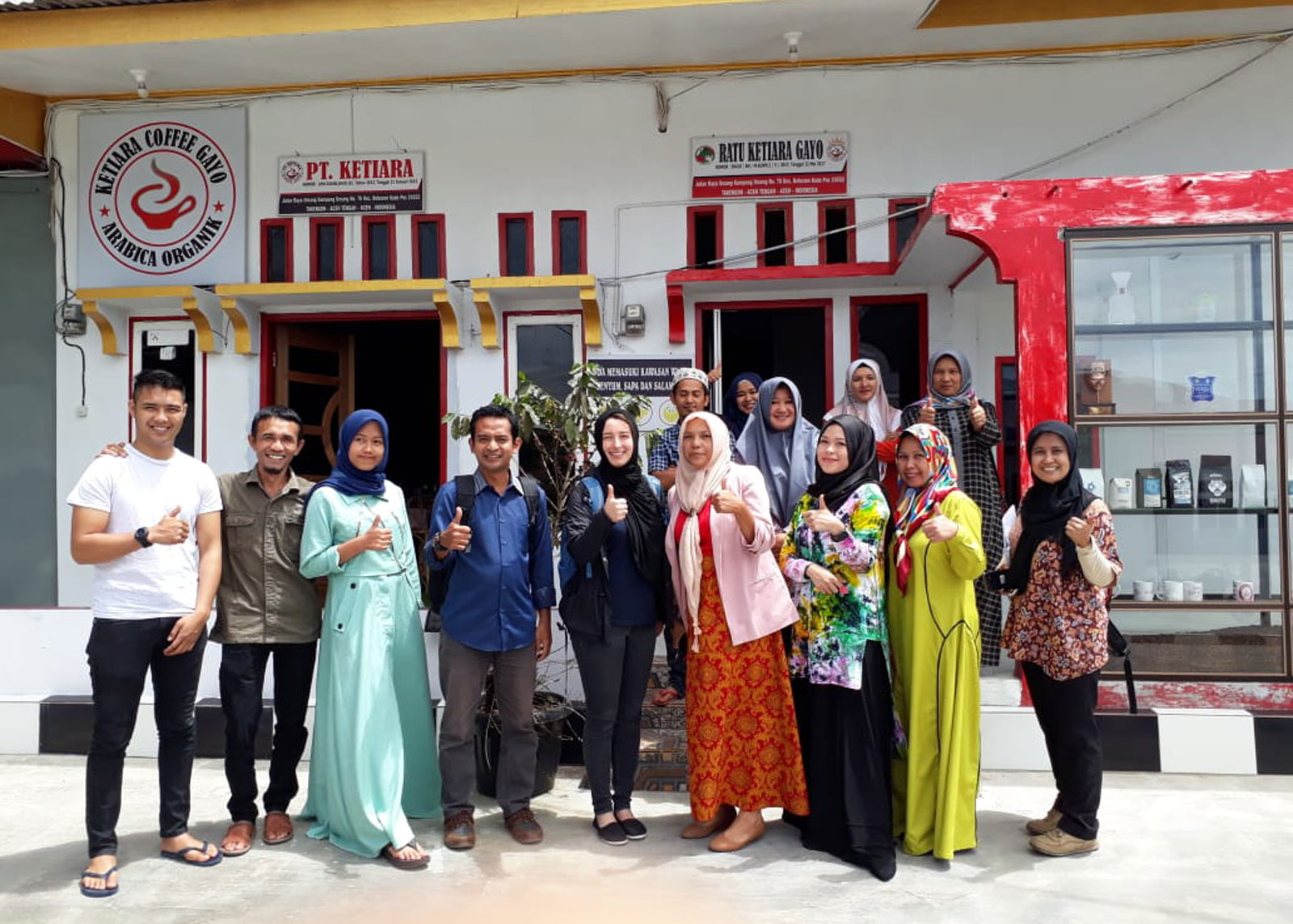

An anthropology ‘people’ pathway to Ag4Development
February 11, 2021

Our first blog in the Career Pathways Campaign explained Liz Ota’s pathway to ag development in forestry. In this blog, Kayla Lochner explains how her interest in people took her from anthropology to ag development. She finishes her blog with some great advice on how agriculture may intersect with a less traditional pathway from ag to ag development.
And you can also hear from Kayla in her ‘career pathways’ podcast we have produced with GenerationAg.
Agricultural communities connect us all. Our food and produce comes from all over the world. Approximately 60% of the world relies on agriculture as a means of survival. It props up economies, food systems, livelihoods and health. Studying and understanding our agricultural systems and the impacts it has on people’s lives intersects with many disciplines: health, nutrition, social sciences, economics, engineering, biology. For many studying agriculture, their connection with food and farms forms through lived experiences of farming but for me, my connection to agriculture came through learning about people.
I have always been interested in people. I love to learn about people’s experiences: their stories, memories, ways of living. When I was younger, I always wanted to be an archaeologist, and when I decided to pursue archaeology at university, I chose anthropology as my second major. It made sense to study past culture and present cultures at the same time; to understand how heritage, identity and history informed who we are as individuals and communities today. But the archaeology I was taught was more scientific, less focussed on the rich experiences of life and the implications for emerging futures, while anthropology often seemed reduced to 20th century armchair investigators who focussed on “othering” and collecting cultural items.
A desire to understand how anthropology can shed light on the present enticed me to take a field school to Indonesia focussed on rural and urban livelihoods in 2016. Organised through the University of Sydney and Universitas Indonesia, we spent a few weeks learning in the ‘field’ about rice and coffee farming, about poverty and livelihood strategies, and emerging urban issues including social housing, work and remittances. We were partnered with Indonesian students who worked with us. We were so fortunate to have educators who ran this field school in the semester holiday break, and who were so passionate about experiential learning. We participated in poverty surveys and ethnographic research but most importantly, were encouraged by peer-to-peer learning, reflexive practice, and especially local communities willing to assist us to better understand their world. For me, learning through experience helped me understand how agriculture is so fundamental to all of our lives, but that at the centre of agricultural systems are people’s experiences and livelihoods.

Drawing on the critical lens I adopted during field school in 2016, I enrolled in a Masters of Development Studies to specialise further. I completed my Masters thesis examining Fairtrade coffee co-operatives in the Gayo Highlands, Indonesia. I was very fortunate to have a supervisor who assisted me in deep diving into the issues of global value chains, and who encouraged me to do primary research. This was a formative experience for me, and the wide reading I did challenged my conceptualisations of what was working and what was not in our food systems. As a result, I have come to appreciate how complex our economic and trade systems are. However, my Masters only strengthened my understanding that our food and trade systems are deeply inequitable and unsustainable at current production and consumption patterns.
Through these experiences, I have become more aware of how inequitable and precarious our food systems are, in both terms of consumption and production. Our current strategies for large scale industrial agriculture are environmentally unsustainable and intensification can pose significant issues for land management, ecosystem processes and biodiversity. Land clearing has been debated as an option but evidence indicates that there is not enough land to convert to farmland at acceptable costs, economically and environmentally.
Agriculture is also severely impacted by changing climate: to create an industry fit for an era of climate related shocks and stresses, agriculture must move away from intensive and industrial food systems that are energy-intensive, highly centralised and reliant on fossil fuels. There is a need to develop a roadmap for agriculture that balance the need to produce food for large populations, to ensure just labour transitions in agriculture and to develop sustainable systems for food production that are environmentally just.
One key thing that anthropology has taught me is to always be reflexive and aware of your positionality. Positionality refers to where we are situated in relation to social and political contexts. Reflexivity is questioning our own assumptions about the world. Fundamentally, I see the world through a distinct set of glasses: I draw on experiences, learnings, and contexts that shape how I see the world. For me this meant challenging the concept that global economies and trade are beneficial for everyone, and that food and incomes are equitable for all.
To explore this in more detail, I applied for a PhD at UNSW. I have deferred my PhD for now but am interested in looking at what the future of agriculture and livelihoods in the context of a changing climate could look like with a focus on environmental justice. I am interested to learn more about how our changing climate is impacting livelihoods, but I am mostly hoping to retain a focus on people and community experiences in this work. I currently work at the UNSW Institute for Global Development and have been lucky to have had so many experiences exploring how development can contribute to our understandings of the world. I most enjoyed teaching into a first-year development course and watching students develop their own ideas of the world around them. For many, it was their first introduction to development, and being able to draw on my experiences in agriculture helped me connect with many students.

In the meantime, through the Researchers in Agriculture for Development (RAID) Network,I enjoy engaging with researchers from different disciplines and discovering all of the facets and journeys we have experienced that have led us to agriculture. There are always opportunities to be engaged as a member (it’s also free!) whether you are well versed in agriculture for development or are just interested to learn more.
If you would like to learn more about how agriculture might intersect with your career, I would encourage you to reach out to your peers and educators to find opportunities. Sustainable agricultural futures will require significant input from those working in the humanities, sciences, medicine and policy. Through multidisciplinary approaches, we can approach a more just agricultural system and food secure future through a variety of initiatives focussed on sustainability, hazard reduction, nutrition and equity.
I am so fortunate to have had opportunities to explore many ways of understanding agriculture through an anthropological lens. Field schools and volunteer opportunities are very common at university if you are interested in a hands-on learning experience; some are hosted in other departments or external to your degree so they might take a bit of energy to find; but they are so worthwhile.
If you are not ready to commit to a field school or overseas experience, I would encourage you to listen to podcasts and read widely on issues related to food production. The One Bite Podcast is a great mini-series focussed on different issues facing food systems today and this ActionAid Report provides a good overview of what a just agricultural future could look like.




